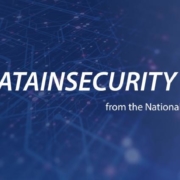Scammers coming out of woodwork to prey on vulnerable
Today’s economic news is grim. Nearly 40 million Americans have found themselves without employment due to the COVID-19 pandemic. For the newly jobless, state unemployment insurance benefits are a lifeline that helps them keep the lights on and provide food for their families. Unfortunately, the combination of billions of dollars in federal stimulus money flowing to state unemployment funds and the tens of millions of new claimants has created a once-in-a- lifetime opportunity for identity thieves: unemployment benefits scams.
According to the Secret Service and media reports, organized rings of criminals are working to siphon off unemployment insurance payments, potentially worth hundreds of millions of dollars, intended for workers who have been laid off due to the COVID-19 pandemic. In the state of Washington, for example, scammers reportedly made off with nearly $1.6 million in a single month. This scam is reportedly even affecting consumers who have not yet lost their jobs.
The recent spike in this type of scam is unfortunately not unique. When news captures the public’s attention—think major hurricanes, terrorist attacks, and economic slowdowns—scammers come out of the woodwork to take advantage of legitimate fears and concerns. In today’s coronavirus environment, there is an unprecedented opportunity for criminals to use the public’s fears about the virus and the resulting economic downturn to defraud consumers.
Since the pandemic began, NCL’s Fraud.org project has seen an uptick in complaints about a variety of scams preying on increasingly vulnerable, financially strapped, and fearful consumers.
“Scammers running phishing schemes, stimulus check fraud, and even pet adoption scams have all been working overtime to use the COVID-19 pandemic as a way to defraud consumers,” said John Breyault, director of NCL’s Fraud.org campaign. “We forecast these scams will continue to increase and evolve and are eager to get the word out about how Pennsylvanians can protect themselves.”
Over the last several months, NCL has devoted monthly Fraud Alerts to giving consumers the tools to spot and avoid some of the many types of scams related to COVID-19. Alerts have featured the most pernicious types of scams that are increasing due to coronavirus, ranging from job scams to increased reports of fraudulent robocall activity.
“As the coronavirus has upended daily life, robocall operators have quickly shifted to blasting out spam phone calls offering all manner of coronavirus-related products and services,” said Breyault. It’s estimated that at least one million robocalls per day are inundating Americans’ cell phones. Fraudulent robocallers are offering air duct sanitation services, work-from-home opportunities, cut-rate health insurance, and immune-system boosting nutritional supplements. Other robocalls have reportedly offered free insulin kits to diabetics, along with free coronavirus testing kits.
“At best, consumers who respond to these calls are setting themselves up to lose money for a non-existent product or service,” said Breyault. “At worst, delaying needed emergency treatments on the belief that a fake coronavirus treatment will save your life could be deadly to you and those you come into contact with.”
In May, NCL hosted a virtual fireside chat with Pennsylvania Attorney General Josh Shapiro and a panel of consumer protection experts on the growing threat of scams linked to the COVID-19 pandemic. NCL’s Breyault and AG Shapiro discussed what they are hearing from consumers, tactics for reaching the most vulnerable populations, and the importance of collaboration for getting key messages out to consumers.
“The work [NCL] is doing to get the word out is so important,” said General Shapiro. “There will be some people who hear my voice, and some people who hear your voice. But the key is that collectively we are warning people about scams and that we’re working together to share actual information—not myths—and not propaganda by one group or the other.”


















